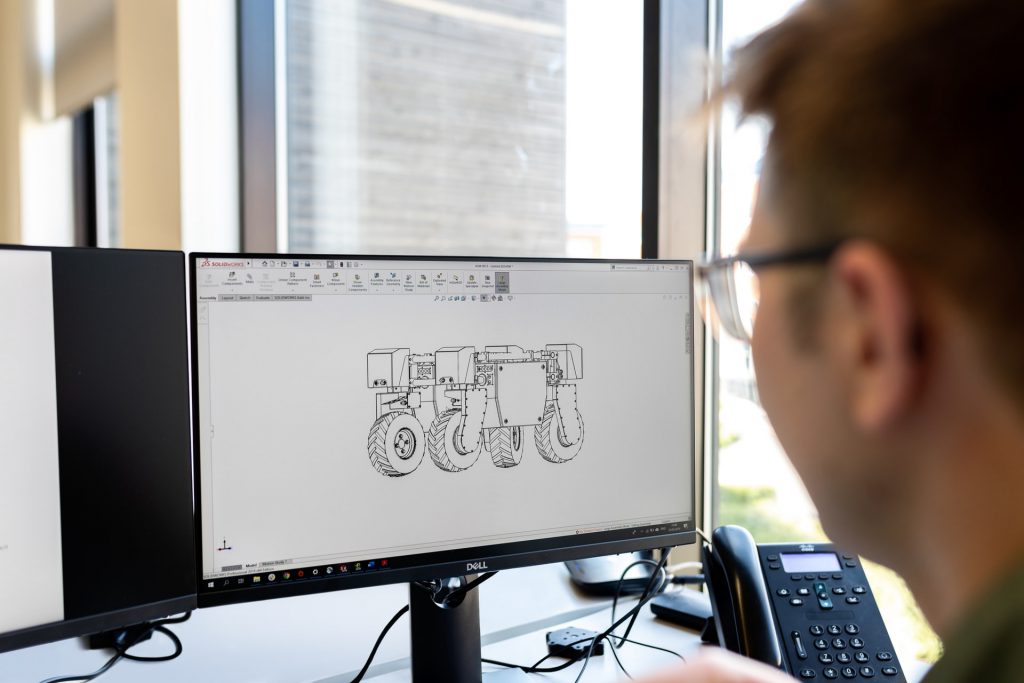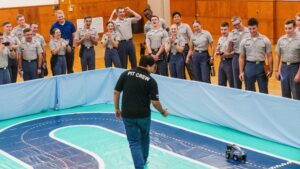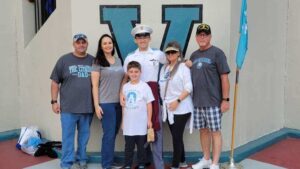
As seen on LowcountryGraduateCenter.com, by Barrry Waldman
Lowcountry employers like Boeing, Mercedes Benz, Volvo, Bosch, NIWC, Cummins, Rotorion, Santee Cooper and many more seek engineers with advanced degrees in a host of disciplines. Engines of growth in a region that has experienced triple the labor force growth of the nation, the manufacturing and high-tech fields are hungry for local expertise.
Enter the only local college with an engineering curriculum. The Citadel, which bestows engineering bachelor’s and master’s degrees, is helping fill the pipeline of critical staff at these businesses, keeping the jobs and employers in this region.
The alternative is for companies to import talent from outside the region, further straining schools, housing, roads and other infrastructure that are already near, or even past, full capacity.
A Shorter Route to Engineering Expertise
For those seeking a shortcut to that expertise, who don’t have the time or resources to commit to a full graduate program, or who want to get their feet wet on an advanced degree before diving in, The Citadel offers certificates in advanced engineering that demonstrate proficiency without requiring the full master’s degree program.
Certificate programs in aeronautics, composite materials, manufacturing, mechatronics, and power and energy are aimed at working professionals and require just four master’s level courses over three years. Upon completion, students earn a certificate and are 40% of the way to a master’s degree.
“The certificate programs are offered in the evenings to allow working individuals with fulltime jobs or other obligations a systematic way to show increased tech proficiency,” said Lt. Col. Robert Rabb, a Ph.D. in mechanical engineering and head of the mechanical engineering department. He says all the students who complete the certificate program have continued to a master’s degree.
Certificates Pave the Way to Further Study
Many of the students in the course are mid-level managers who need a graduate degree to move up the corporate ladder. Boeing, for example, requires an advanced degree to become a manager in the company.
Admission to the certificate program is somewhat less rigorous than for the full graduate level program. For some, it is a way to demonstrate the ability to do graduate work before applying for the full master’s.
Certificate students in aeronautics take these four courses: advanced fluid dynamics, applied aerodynamics, compressible flow, and computational methods in thermal sciences. Upon completion, these courses may be used as part of a master’s degree in aeronautical engineering or in any of the other four related engineering courses.
In other words, students with a certificate in one discipline can apply those credits to a master’s in another.
In a time of labor shortages, particularly in high-skilled professions, plaguing businesses nationwide, the median salaries in many engineering management positions tops six figures. For 2019, the last year before Covid, roughly 300 new industrial engineers were hired in the three-county region, according to the Charleston Regional Development Alliance.
No Knob Year Rituals for Grad Students
The traditions around discipline for which The Citadel is renowned do not apply to graduate or certificate students. While first-year undergraduates at South Carolina’s military college must wear buzz cuts, endure verbal harassment from upperclassmen and walk in the street at right angles while on campus, those taking graduate level courses have a normal grad school experience.
“The dress is business casual, and you can grow your hair long and talk bad about our country,” Rabb joked.
For more information, visit the website or call Dr. Rabb at (843) 953-0520.

 Citadel cadets take first place in Amazon Web Services DeepRacer Competition against cadets from West Point and the Naval Academy
Citadel cadets take first place in Amazon Web Services DeepRacer Competition against cadets from West Point and the Naval Academy “I am part of a prestigious school with a long lineage of proud graduates”: Meet Marine Corps active-duty student John Bauman
“I am part of a prestigious school with a long lineage of proud graduates”: Meet Marine Corps active-duty student John Bauman My Ring Story: Maintaining honor
My Ring Story: Maintaining honor

